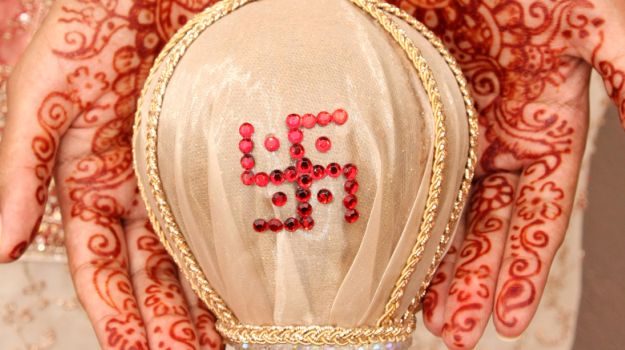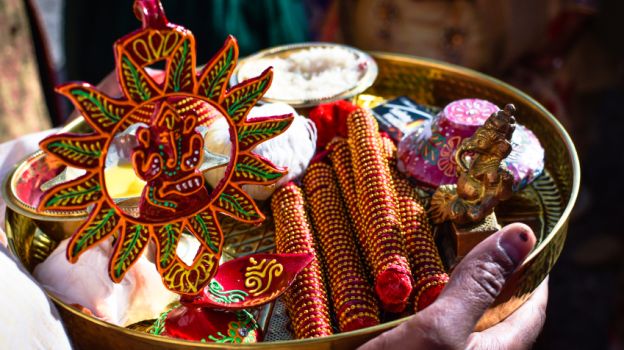If reality were like Karan Johar movies, all women would have nothing to do on Karva Chauth other than deck up in finery and jewels, wait around all day looking amazing, then doing that looking through the sieve bit before a doting husband feeds them their first fast breaking morsel or sip, perhaps while singing a song. Reality is rather different, obviously. There is thirst and hunger to contend with along with the million challenges of a regular day (the mehndi has to be perfect and cannot be allowed to get on to that beautiful outfit!).
After all there are children and others to be fed regardless of one’s own fast! And now with the pan Indian popularity that this otherwise North Indian festival enjoys (thanks generally to Bollywood and Karan Johar in particular) more and more Indian women participate in the rituals of Karva Chauth.
Karva Chauth and the Indian woman.

Karva Chauth is a time when most wives are concerned with observing the rituals correctly and in keeping with traditions. There is a comfort in the ritual and an enjoyment of the festivities that surround it. Most wives observe the fast because they have faith that by doing so they are safeguarding the health and wellbeing of their husbands as well as their relationship and its sanctity.
It is also a way for a woman to demonstrate her love for her husband and the importance of having him in her life. In an increasingly globalized world, Indian women see this as one way to preserve traditions and the Indian way of life. Even financially independent and modern women choose to do this. In more recent times, husbands do also fast right alongside their wives, cementing their commitment to the relationship as well; another reason why modern women observe the ritual.
Ensuring good health and wellbeing during Karva Chauth.

What also concerns women is how to ensure that they are able to keep their fast without fainting or becoming unwell. Nutritionists advise women to eat lots of fruit and whole grains during the morning sargi before initiating the fast, to keep hunger and thirst at bay and to avoid dizziness. It is also best to avoid heavy, fried, very salty and spicy foods to avoid dehydration. Breaking the fast also should be gradual and the first proper meal should be taken about 15 to 30 minutes after breaking the fast.
So here’s wishing all our readers a Happy and Healthy Karva Chauth, with wishes that the moon rises extra early for you all today!
Author: Reena Daruwalla





